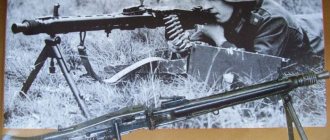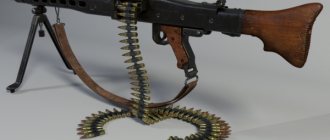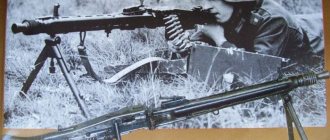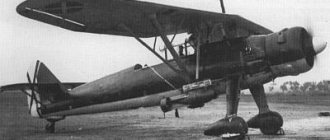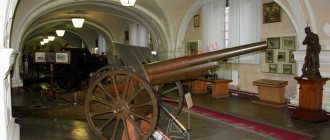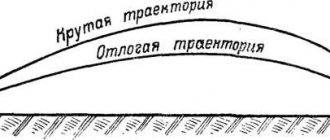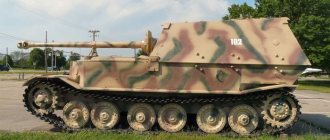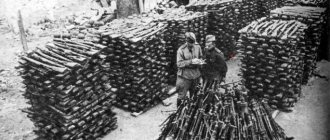Our enemies. Ernst Udet
One of the brightest pilots in the history of German aviation, the legendary ace of the First World War, test pilot, traveler... In the portrait gallery of Elena Syanova there is a man who had crowds of fans around the world, Ernst Udet. The project was prepared for the “Price of Victory” program of the Ekho Moskvy radio station.
Ernst Udet, the legendary ace of the First World War, a popular film actor and stunt performer even in America, friend of Leni Riefenstahl and lover of Olga Chekhova, etc., etc., and a lot of extravagant details. He was also Goering's friend and right-hand man, namely the head of the Technical Directorate of the Ministry of Aviation. And the entire time he headed this department, Goering, one might say, remained one-armed.
On November 15, 1941, the Germans were informed that everyone’s favorite and “national hero,” General Udet, had crashed while testing a new aircraft. At his funeral, Goering sobbed loudly. But a little later, continuing to shed tears, he spoke openly and in front of many witnesses that his unforgettable friend practically ruined the entire development program of the Luftwaffe and it was he who was responsible for the huge losses in the “Battle of Britain.”
Colonel General of Aviation Ernst Udet, 1940
It is a rare case when Goering, in my opinion, did not exaggerate someone else’s guilt. This conflict in the German Air Force is well known to historians. The failure of Udet's projects, especially the Me 210, was not only the collapse of his career, but also a disaster for the German Air Force. By February 1940, technical problems in Goering's department had worsened to the limit, planes were crashing and falling apart in the air. Millions of stamps simply burned, all production schedules were disrupted.
Hitler gave Goering a dressing down; Goering yelled at Udet; he snapped and went to the next test. For example, He 177, a “32-ton fool”, which our hero also wanted to force into a dive with an angle of attack of 60 degrees, and he himself performed this “trick”, which few people were able to repeat. Testing of this aircraft alone cost the lives of sixty crews.
Ernst Udet was a friend of Leni Riefenstahl and the lover of Olga Chekhova
And here’s the paradox: it was precisely this Ernst Udet, in the very Soviet 70s, who managed to become the hero of one of the first TV series of that time called “The Last Flight of the Albatross” - a film about espionage around the “swallow”, Me.262, - the first production jet aircraft. For the first time, a timid kind word was even said in the author’s text for a fascist of such high stature, namely: “Ernst Udet could become a good soldier if he served justice.”
But I think it’s unlikely, because with his incompetence, lack of technical education, lack of organizational skills, adventurism, drunkenness (and this is also shown in the film), he would have made a mess in any service.
Funeral of Ernst Udet. To the right of the coffin is Hermann Goering, 1941
And one more detail: Udet did not crash during the tests, but shot himself. In his suicide note, he complains that “these Jews,” meaning Field Marshal Milch, “twisted the old donkey Goering and ruined everything.”
There is a story here, and I’ll probably tell you more about Milch, who really was a Jew and, perhaps, the most productive figure in the Luftwaffe. It is also believed that Udet, having visited the Eastern Front, was shocked by the cruelty of treatment of Soviet prisoners of war and it was because of all this that he allegedly shot himself in the forehead. But I found one more detail. Emma Goering mentioned her in the spring of 1941 even before Udet’s suicide.
“You have so many times,” she writes to her husband, “with your characteristic persistence, reproached Ernst for the deaths of crews, that I would not be surprised if one day he does not bring the plane out of a tailspin, but lets go of the stick to follow those whom, in your opinion, he , ruined."
At Udet's funeral Goering sobbed loudly
Was Goering’s cruel reproach the last straw of failure and disfavor that fell on Udet? Or is this reproach generally the only point of his self-accusation? I'm sure of the second one. And I think that this most high-profile suicide, apart from the last ones, in the entire history of the Third Reich reflected the essence of the psychology of these people, who fundamentally doomed millions of “inferior” people to death, the essence of their ideas about principles, honor and responsibility. Do you know which episode from “Seventeen Moments of Spring” is the most fantastic? The one that everyone easily believed in: the episode of the changing of the guard by Walter Schellenberg.
schPMYAR sDER B 1914 ONYARSOKHK B KERMSCH YINKS, YNRNPSCH ONYAYYUK GYU YABNI YAVER KH B YABNANDMNE BPEL. I MYUVYUKNL BNIMSH NM GYUOHYAKYA DNAPNBNKEZHEL B bNGDSMSHE YHKSH, TsDE YARYUK YYULSHL LNKNDSHL NTKHZHEPNL. NDMYUFDSH YAYULNKER SOYUK, OKKNR VSDNL NYARYUKYA FHB. sDERYU YUPEYARNBYUKH GYU BNGDSMNE USKHTSYUMYARBN. kKHE ON YAVYUYARKKHBNLS YAREVEMKHCH NAYARRNREKEYARB NM KHGAEFYUK BNEMMNTSN RPHASMYUKYU KH ASHK NROPYUBKEM MY TPYUMZHSGYAIKHI TPNMR.RUL ETSN OPNRKHBMKHYULKH YARYUKKH NOSHRMSHE KERVKHYKH KH YUBKHYUTSPSOOSH “YUKHYARSH”, YAPEDH MKHU KHGBEYARMSHE YUYASH - tsKHMELEP, mSHFEYAYAP KH tNMY. th DEYUAPCH 1917 TSNDYU MU ETSN YAVERS ASHK SFE 21 YAAHRSHI YAYULNKER. BAYNPE ELS DNBEPHKH YNLYUMDNBYUMKHE 37-I SHYAYUDPNI HYARPEAHREKEY JASTA-37.
b MYUVYUKE 1918 TSNDYU OPNYAKYUBKEMMSHI MELEZHYHI YUYA LYUMTPED TNM PHURUNTEM OPKHTSKYYAKHK RYUKYUMRKHBNTSN KERVKHYU YAKSFKHRE B YABNCH SCHKKHRYUPMSCH 11-CH SHCHAYYUDPS, YANYARNYSCH HG KSVIKHU OHKNRNB TsEPLYUMXX. OEPEYEB I SYARYUPEBYETSN “YUKEAYURPNYU” MU BSHYANYNLUMEBPEMMSHY “tNYYEP-RPHOKYUM”, sDER YARPELKHREKEMN MYUPYUYKHBYUK YAVER YABNKHU ONAED.
b LYUE SHYAYYUDPYU ONKSVKHKYU MNBEIKHE KHYARPEAHREKH “tNYYEP” D-VII, YNRNPSHL ME ASHKN PUBMSHU YAPEDH YAYULNKERNB YANCHGMKHYNB. MU SHCHRNI LYUHME sDER BNEBUK DN YNMZHYU KERU KH NDEPFYUK, ONFYUKSI, YAYULSCH SMKHYUKEMSCH ONAEDS GYU BYACH BNIMS. osKELERMSHL NTsMEL YABNETSN KHYARPEAHREK NM ONDAKHK RYUMY.
b YNMZHE BNIMSH sDER KERYUK MU LYUKEMAINL “YAHLEMYA-YSYYEPR” I AHPNRYURKHBMSHL DBKHTSUREKEL, OPHBKEYUBYEL ETSN SDYUVMSHL YANVERYUMKHEL YAYNPNYARMSHU H LYUMEBPEMMSHU YUPYUREPHYARKHY. DEME YUOHRSKIZHHH TseplyumHH BYARPERHK, HLEI MU YAVERS 62 BNGDSMSHE ONAEDSH.
b RPHDJYURSHE TsNDSH SDER, MEYALNRP MU BPYUFDEAMSHE NRMNYEMH I PEIUYALYUPYUKNL TsEPKHMTSNL, ONYARSOKHK MU YAKSFAS B TsKHRKEPNBYAYNE lHMKHYAREPYARBN yBKHYUZHHH. 17 MNAP 1941 TSNDYU ONYAKE NVEPEDMNTSN YAYYUMDYUKYU, SYARPNEMMNTSN TsEPKHMTSNL ON ONBNDS MEONDTSNRNBKEMMNYARKH LYURVYUYARKH Y PNYYAHIYAYHL UNKNDYUL, ONYNMVKHK I YANANI.
YaOHYANY BYAEU KHGBEYARMSHU ONAED
╧ O/O
| duryu onaedsh | YaAKHRSHI YYULNK╦R | bPUFEYAYU VUYARE | pYuINM AN (OYUDEMKH) | bPEL ONAEDSH | YaBNJ VUYARE | |
| 1 | 18.03.1916 | Farman F.40 | GB.4 | lChKEUUSGEM | 17:10 | yey m |
| 2 | 12.10.1916 | Breguet - Michelin | BM.120 | pSYAREMUYPR | 15:30 | Jasta 15 |
| 3 | 24.12.1916 | Caudron G.IV | — | nAEPYYAOYUU | 11:00 | |
| 4 | 20.02.1917 | Nieuport Scout | Esc N.81 | yuYaOYuU | 12:00 | |
| 5 | 24.04.1917 | Nieuport | — | UBHMENM | 19:30 | |
| 6 | 5.05.1917 | Spad VII | — | ASYU-DE-bHKE | 19:30 | |
| 7 | 14.08.1917 | DH.4 | 25 Sqdn | oNM-YU-BYUMDEM | 20:30 | Jasta 37 |
| 8 | 15.08.1917 | Sop 1/2 Strutter | 43 Sqdn | oNM-YU-BYUMDEM | 10:25 | |
| 9 | 21.08.1917 | DH.4 | 27 Sqdn | yuYAY | 8:45 | |
| 10 | 17.09.1917 | DH.5 | 41 Sqdn | h. xGEK | 7:30 | |
| 11 | 24.09.1917 | Camel | 43 Sqdn | b. KNNYYU | 12:20 | |
| 12 | 28.09.1917 | Camel | 6209, 43 Sqdn | 3. BEMTSK | 18:00 | |
| 13 | Camel | 43 Sqdn | BEPLEKKE | 18:05 | ||
| 14 | 18.10.1917 | SE.5a | 84 Sqdn | d╦KELNM | 10:35 | |
| 15 | 28.10.1917 | DH.5 | — | oSKJUOJEKKE | 13:40 | |
| 16 | 5.12.1917 | SE.5a | — | BEYARPNGEAEYE | 14:30 | |
| 17 | 6.01.1918 | Nieuport | — | aHYYAYUNRE | 16:15 | |
| 18 | 28.01.1918 | HYARPEAHREKE | — | b&w aHYYAYUNRE | 16:35 | |
| 19 | 29.01.1918 | Bristol F2b | — | gHKKEAEYE | 12:00 | |
| 20 | 18.02.1918 | Camel | — | gYUMDBNPDE | 10:50 | |
| — | 9.03.1918 | Camel M/O | — | 3. SRELU | 10:40 | |
| 21 | 27.03.1918 | RE.8 | — | yuKEAEP | 9:10 | Jasta 11 |
| 22 | 28.03.1918 | Camel | C8244, 43 Sqdn | yKEAEP - aYuONL | 9:10 | |
| 23 | 6.04.1918 | Camel | 43 Sqdn | yuLEKE | 14:15 | |
| 24 | 31.05.1918 | Breguet XIV | BR.29 | Part 3. IXYYYANMY | 13:00 | Jasta 4 |
| 25 | 2.06.1918 | Breguet XIV | — | I-3. m╦IH | 11:50 | |
| 26 | 5.06.1918 | Spad | — | h. aChGYUMYAH | 12:00 | |
| 27 | 6.06.1918 | Spad | — | part TYUBPNKK | 11:40 | |
| 28 | 7.06.1918 | Spad | — | b. bHKKEP - yNRRPE | 19:00 | |
| 29 | 13.06.1918 | Spad | — | I-3. TUBPNKK | 17:45 | |
| 30 | 14.06.1918 | Spad | Esc Spa.153 | I. oEEP - schTsKЪ | 20:00 | |
| 31 | 23.06.1918 | Breguet XIV | — | kYU-TEPRE-lHKNM | 12:10 | |
| 32 | Breguet XIV | — | iPSC | 20:15 | ||
| 33 | 24.06.1918 | Breguet XIV | — | lNMRHMEH | 10:00 | |
| 34 | 25.06.1918 | Spad | — | KEYYU kNMONM | 18:45 | |
| 35 | Spad | — | WARM UBHMEH | 18:50 | ||
| 36 | 30.06.1918 | Spad | — | tYUBPNKKE | 20:00 | |
| 37 | 1.07.1918 | Breguet XIV | — | oEEPTNM - lNPR | 11:45 | |
| 38 | Spad | — | tYUBPNKKE | 20:55 | ||
| 39 | 2.07.1918 | Nieuport 28 | N6337, 27 Aero | aEGCH-yaEM-feplem | 8:15 | |
| 40 | 3.07.1918 | Spad | — | b. kYUBEPSHMYU | 8:25 | |
| 41 | 1.08.1918 | Nieuport 28 | 27 Aero | I. yPYLUI | 9:30 | |
| 42 | Breguet XIV | — | lChPE - yPSCHRR | 12:15 | ||
| 43 | Spad VII | — | I. aYME╦ | 20:30 | ||
| 44 | 4.08.1918 | Spad VII | — | I. aPSHMJ | 20:05 | |
| 45 | 8.08.1918 | SE.5a | — | tNMREM-KE-yYUOOH | 17:30 | |
| 46 | SE.5a | — | b&w aYUPKE | 18:30 | ||
| 47 | Camel | D9481, 54 Sqdn | b&w TSYNYSPYU | 20:40 | ||
| 48 | 9.08.1918 | Camel | 201 Sqdn | part bNBHKKEPYU | 16:25 | |
| 49 | Camel | 65 Sqdn | b&w schPKEBHK | 21:20 | ||
| 50 | 10.08.1918 | Camel | 3 Sqdn | Part lNPYSPYU | 11:20 | |
| 51 | Camel | 43 Sqdn | b. tsch | 19:45 | ||
| 52 | 11.08.1918 | DH.9 | 98 Sqdn | bNM | 10:00 | |
| 53 | 12.08.1918 | SE.5a | 40 Sqdn | oEPNMM | 11:30 | |
| 54 | 14.08.1918 | Bristol F2b | 88 Sqdn | BEPLUMDSBHKKEP | 19:00 | |
| 55 | 15.08.1918 | Camel | — | schPKEBHKE | 17:15 | |
| 56 | 16.08.1918 | Spad VII | Esc Spa.3 | h. TSYNYSPYU | 10:40 | |
| 57 | 21.08.1918 | SE.5a | — | h. | 18:30 | |
| 58 | Camel | E1478, 148 Aero | ySPYAEKKE | 9:15 | ||
| 59 | 22.08.1918 | Camel | 80 Sqdn | I. APSH | 8:30 | |
| 60 | SE.5a | — | lNPEOYU | 12:30 | ||
| 61 | 26.09.1918 | DH.9 | 99 Sqdn* | aCH | 17:10 | |
| 62 | DH.9 | 99 Sqdn* | I'm lying down | 17:20 |
* 09/26/18 TSNDYu Jasta 4 Х Jasta 77 YANBLEYARMN YAAHKH 4 DH.9, X, OH BYAEI BHDHLNYARH, “Kofi 19” GUYAVKHRYUK SHHRKH ONAEDSH Jasta 77. schRNR BNOPNYA BSHGSHBUER YAONPSH, ONYAINKEYS YANU PYUMHKNYAE TNRN, TsDE OKHKNRSH Jasta 4 YAMIRSH YARNYYKHLH MU TNME JAAHRNCN DH.
eYAKKH NRNIRKH NR NTKHZHHYUKEMNI BEPYAKHKH, RN NYNMVYUREKEMSHI YAV╦ONAED sDERYU LNFER ASHRE KHIE 60, MN ELS, YUY OPYUBKHKN, GUYAVKHRSHBUCHR 62. SWW D.III, OKKNR - sDER, 1 918 C.
Links[edit]
- Barker, Ralph (2002). Royal Flying Corps in the First World War
. Robinson. ISBN 1-84119-470-0. - Becker, Cajus (1994). Luftwaffe War Diaries
. Da Capo Press. ISBN 0-306-80604-5. - Herlin, Hans (1960). UDEt - a man's life
. McDonald. - Kelly, Saul (2002). Lost Oasis: War in the Desert and the Hunt for Zerzura
. Westview Press. ISBN 0-7195-6162-0. - Knopp, Guido (2000). Hitlers Krieger
. München: Goldmann Verlag. ISBN 3-442-15045-0. - Udet, Ernst (1981). Stanley M. Ulanov (ed.). Ace of the Iron Cross
. Arco. ISBN 0-668-05163-9. - Udet, Ernst (1935). Mein Fliegerleben (My Flying Life)
. Berlin, Germany: Im Deutschen Verlag, Ullstein AG - van Ishoven, Armand (1979). Eagle's Fall: The Life of Fighting Ace Ernst Udet
. Kimber & Co. ISBN 0-7183-0067-X. - Linge, Heinz (1980). Bis zum Untergang
. Munich, Germany: Herbig Verlag. ISBN 3776610212. - VanWyngarden, Greg et al
(2006)
Early German Aces of the First World War
Osprey Publishing. ISBN 1-84176-997-5, ISBN 978-1-84176-997-4.
Early life[edit]
Ernst Udet was born on 26 April 1896 in Frankfurt am Main, German Empire. Udet grew up in Munich and was known from early childhood for his sunny temperament and passion for aviation. In his youth, he hung on a nearby plant and army airship squadron. In 1909 he helped found the Munich Aero Club. [3] After the crash of a glider he and a friend had built, he finally flew in 1913 as a test pilot to the nearby Otto factory, owned by Gustav Otto, which he frequently visited. [3]
Excerpt characterizing Udet, Ernst
He looked at her, and the serious passion in her expression struck him. Her face said: “Why ask? Why doubt something you can’t help but know? Why talk when you can’t express in words what you feel.” She approached him and stopped. He took her hand and kissed it. - Do you love me? “Yes, yes,” Natasha said as if with annoyance, sighed loudly, and another time, more and more often, and began to sob. - About what? What's wrong with you? “Oh, I’m so happy,” she answered, smiled through her tears, leaned closer to him, thought for a second, as if asking herself if this was possible, and kissed him. Prince Andrei held her hands, looked into her eyes, and did not find in his soul the same love for her. Something suddenly turned in his soul: there was no former poetic and mysterious charm of desire, but there was pity for her feminine and childish weakness, there was fear of her devotion and gullibility, a heavy and at the same time joyful consciousness of the duty that forever connected him with her. The real feeling, although it was not as light and poetic as the previous one, was more serious and stronger. – Did maman tell you that this cannot be earlier than a year? - said Prince Andrei, continuing to look into her eyes. “Is it really me, that girl child (everyone said that about me) Natasha thought, is it really from this moment that I am a wife, equal to this stranger, sweet, intelligent man, respected even by my father. Is that really true! Is it really true that now it’s no longer possible to joke with life, now I’m big, now I’m responsible for my every deed and word? Yes, what did he ask me? “No,” she answered, but she did not understand what he was asking. “Forgive me,” said Prince Andrei, “but you are so young, and I have already experienced so much of life.” I'm scared for you. You don't know yourself. Natasha listened with concentrated attention, trying to understand the meaning of his words and did not understand. “No matter how difficult this year will be for me, delaying my happiness,” continued Prince Andrei, “in this period you will believe in yourself.” I ask you to make my happiness in a year; but you are free: our engagement will remain a secret, and if you were convinced that you do not love me, or would love me ... - said Prince Andrei with an unnatural smile. - Why are you saying this? – Natasha interrupted him. “You know that from the very day you first arrived in Otradnoye, I fell in love with you,” she said, firmly convinced that she was telling the truth. - In a year you will recognize yourself... - A whole year! – Natasha suddenly said, now only realizing that the wedding had been postponed for a year. - Why a year? Why a year?...” Prince Andrei began to explain to her the reasons for this delay. Natasha didn't listen to him. - And it’s impossible otherwise? – she asked. Prince Andrei did not answer, but his face expressed the impossibility of changing this decision. - It's horrible! No, this is terrible, terrible! – Natasha suddenly spoke and began to sob again. - I will die waiting a year: this is impossible, this is terrible. “She looked into the face of her fiancé and saw on him an expression of compassion and bewilderment. “No, no, I’ll do everything,” she said, suddenly stopping her tears, “I’m so happy!” – Father and mother entered the room and blessed the bride and groom. From that day on, Prince Andrei began to go to the Rostovs as a groom. There was no engagement and Bolkonsky’s engagement to Natasha was not announced to anyone; Prince Andrei insisted on this. He said that since he was the cause of the delay, he must bear the entire burden of it. He said that he was forever bound by his word, but that he did not want to bind Natasha and gave her complete freedom. If after six months she feels that she does not love him, she will be within her right if she refuses him. It goes without saying that neither the parents nor Natasha wanted to hear about it; but Prince Andrei insisted on his own. Prince Andrei visited the Rostovs every day, but did not treat Natasha like a groom: he told her you and only kissed her hand. After the day of the proposal, a completely different, close, simple relationship was established between Prince Andrei and Natasha. It was as if they didn't know each other until now. Both he and she loved to remember how they looked at each other when they were still nothing, now both of them felt like completely different creatures: then feigned, now simple and sincere. At first, the family felt awkward in dealing with Prince Andrei; he seemed like a man from an alien world, and Natasha spent a long time accustoming her family to Prince Andrei and proudly assured everyone that he only seemed so special, and that he was the same as everyone else, and that she was not afraid of him and that no one should be afraid his. After several days, the family got used to him and, without hesitation, continued with him the same way of life in which he took part. He knew how to talk about the household with the Count, and about outfits with the Countess and Natasha, and about albums and canvas with Sonya. Sometimes the Rostov family, among themselves and under Prince Andrei, were surprised at how all this happened and how obvious the omens of this were: the arrival of Prince Andrei in Otradnoye, and their arrival in St. Petersburg, and the similarity between Natasha and Prince Andrei, which the nanny noticed on their first visit Prince Andrei, and the clash in 1805 between Andrei and Nikolai, and many other omens of what happened were noticed by those at home. The house was filled with that poetic boredom and silence that always accompanies the presence of the bride and groom. Often sitting together, everyone was silent. Sometimes they got up and left, and the bride and groom, remaining alone, were still silent. Rarely did they talk about their future lives. Prince Andrei was scared and ashamed to talk about it. Natasha shared this feeling, like all his feelings, which she constantly guessed. One time Natasha started asking about his son. Prince Andrei blushed, which often happened to him now and which Natasha especially loved, and said that his son would not live with them. - From what? – Natasha said in fear. - I can’t take him away from my grandfather and then... - How I would love him! - Natasha said, immediately guessing his thought; but I know you want there to be no excuses to blame you and me. The old count sometimes approached Prince Andrei, kissed him, and asked him for advice on the upbringing of Petya or the service of Nicholas. The old countess sighed as she looked at them. Sonya was afraid at every moment of being superfluous and tried to find excuses to leave them alone when they didn’t need it. When Prince Andrei spoke (he spoke very well), Natasha listened to him with pride; when she spoke, she noticed with fear and joy that he was looking at her carefully and searchingly. She asked herself in bewilderment: “What is he looking for in me? He is trying to achieve something with his gaze! What if I don’t have what he’s looking for with that look?” Sometimes she entered into her characteristic insanely cheerful mood, and then she especially loved to listen and watch how Prince Andrei laughed. He rarely laughed, but when he laughed, he gave himself entirely to his laughter, and every time after this laugh she felt closer to him. Natasha would have been completely happy if the thought of the upcoming and approaching separation did not frighten her, since he too turned pale and cold at the mere thought of it. On the eve of his departure from St. Petersburg, Prince Andrei brought with him Pierre, who had never been to the Rostovs since the ball. Pierre seemed confused and embarrassed. He was talking to his mother. Natasha sat down with Sonya at the chess table, thereby inviting Prince Andrey to her. He approached them. – You’ve known Bezukhoy for a long time, haven’t you? - he asked. - Do you love him? - Yes, he is nice, but very funny. And she, as always speaking about Pierre, began to tell jokes about his absent-mindedness, jokes that were even made up about him. “You know, I trusted him with our secret,” said Prince Andrei. – I have known him since childhood. This is a heart of gold. “I beg you, Natalie,” he said suddenly seriously; – I’ll leave, God knows what might happen. You might spill... Well, I know I shouldn't talk about it. One thing, no matter what happens to you when I’m gone... - What will happen?... - No matter what grief there is, - continued Prince Andrei, - I ask you, m lle Sophie, no matter what happens, turn to him alone for advice and help. This is the most absent-minded and funny person, but the most golden heart. Neither father and mother, nor Sonya, nor Prince Andrei himself could foresee how parting with her fiancé would affect Natasha. Red and excited, with dry eyes, she walked around the house that day, doing the most insignificant things, as if not understanding what awaited her. She did not cry even at that moment when, saying goodbye, he kissed her hand for the last time. - Don't leave! - she just said to him in a voice that made him think about whether he really needed to stay and which he remembered for a long time after that. When he left, she didn't cry either; but for several days she sat in her room without crying, was not interested in anything and only sometimes said: “Oh, why did he leave!”
external reference
- General Ernst Udet
- Ernst Udet and his planes in Argentina
| authoritative control |
|
- Data: Q57179
- Multimedia: Ernst Udet
